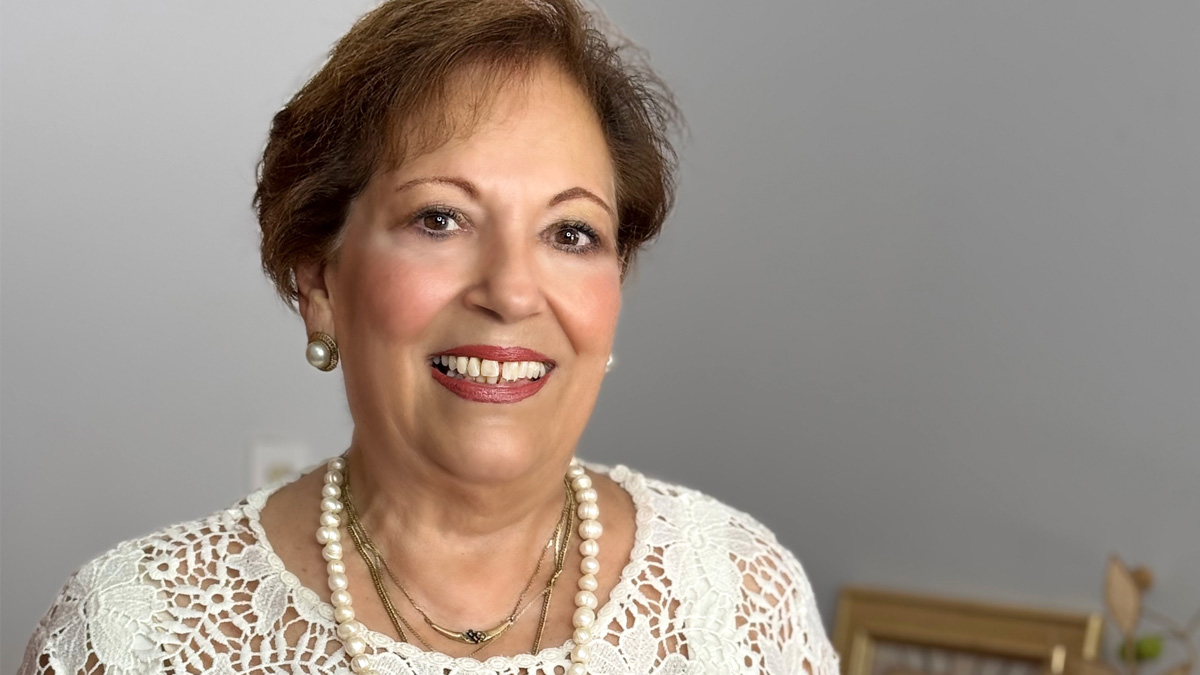Valores
Justicia social
Publicado
2 años antesel

Un punto de vista filosófico y político que promueve la distribución equitativa de oportunidades y recursos
A lo largo de su historia el significado de justicia social ha variado, pero siempre en torno a un mismo eje de igualdad . No obstante, en el 2007, la Asamblea General de las Naciones Unidas proclamó el 20 de febrero como el Día Mundial de la Justicia Social, sosteniendo que ésta es “un principio fundamental para la convivencia pacífica y próspera”.
¿Qué es?
La justicia social es un concepto complejo que abarca temas como la igualdad, oportunidades, el estado de bienestar, la pobreza, las reivindicaciones laborales, el feminismo y muchos otros que tienen como norte común la construcción de una sociedad más equitativa y menos desigual.
Entonces, es un concepto que parte de la desigualdad que existe entre los individuos y tiene como objetivo acabar con ella, para que las personas estén en un mismo plano.
Puede ser comprendida de distintas formas, pero siempre gira en torno a la idea de que las sociedades deben cambiar para mejor, es decir, hacia sociedades más justas en el reparto de sus riquezas. Apunta a disminuir los márgenes de exclusión y discriminación, y a combatir la pobreza y la desigualdad entre los ciudadanos.
En definición: La justicia social es un punto de vista filosófico y político que promueve la distribución equitativa de oportunidades y recursos entre la sociedad.
Es uno de los aspectos más importantes que forma parte de las sociedades y los pueblos, es un valor que actúa promoviendo el respeto de forma igualitaria entre todos los deberes y los derechos que tienen todos los individuos que conforman una sociedad.
Se enfoca en el reparto de forma equitativa de todos los bienes sociales para poder asegurar la dignidad a los habitantes logrando así mejorar la cohesión.
Es un principio relacionado con la vida social e individual en la comunidad política.
Lo que debemos que saber
• Es uno de los muchos valores que existen, sin embargo, resulta ser el más importante para la sociedad.
• Se encarga de velar por el bienestar común y porque las personas puedan vivir de forma armónica en la sociedad.
• Vigila que se dé un buen equilibrio entre el bien individual y el bien común tomando como base los valores humanos fundamentales.
• Busca encontrar una equidaden asuntos sociales.
• Es la bandera de muchos tipos de organizacionesy movimientos políticos y sociales.
• Se manifiesta por medio de protestas en las calles y espacios públicos cuando el Estado no la garantiza ni la promueve dentro de la sociedad.
En resumen, justicia, igualdad y libertad deberían de ser más que simples palabras, deberían ser metas. No es lo mismo ser un buen hombre que ser un buen ciudadano y como siempre digo: sin justicia no hay paz.
Social justice
A philosophical and political point of view that promotes the equitable distribution of opportunities and resources
Throughout its history, the meaning of social justice has varied but always around the same axis of equality. However, in 2007, the United Nations General Assembly proclaimed February 20 as World Day of Social Justice, maintaining that this is “a fundamental principle for peaceful and prosperous coexistence.”
What is it?
Social justice is a complex concept that covers issues such as equality, opportunities, the welfare state, poverty, labor demands, feminism, and many others that have as their common goal the construction of a more equitable and less unequal society.
So, it is a concept based on the inequality between individuals and aims to end it so that people are on the same level.
It can be understood differently, but it always revolves around the idea that societies must change for the better, that is, towards more fair societies in distributing their wealth. It aims to reduce the margins of exclusion and discrimination and to combat poverty and inequality among citizens.
Social justice is a philosophical and political point of view that promotes the equitable distribution of opportunities and resources in society.
It is one of the most critical aspects of societies and peoples; it is a value that promotes respect equally among all the duties and rights that all individuals that make up a society have.
It focuses on the equitable distribution of all social goods to ensure dignity to the inhabitants, thus improving cohesion.
It is a principle related to social and individual life in the political community.
What we should know
• It is one of the many values that exist; however, it turns out to be the most important for society.
• It is responsible for ensuring the common well-being and that people can live harmoniously in society.
• Ensures a good balance between the individual and common good based on fundamental human values.
• Seeks to find equity in social issues.
• It is the flag of many political and social organizations and movements.
• It manifests protests in the streets and public spaces when the State does not guarantee or prove it within society.
In short, justice, equality, and freedom should be more than just words; they should be goals. Being a good man is not the same as being a good citizen; as I always say, there is no peace without justice.
Valores
El Relevo del Alma: La Batalla por la Dignidad en el Asilo Senecú
Publicado
2 meses antesel
01/08/2025Por
Luz María Sotelo
A sus 78 años de historia, el hogar que ha sido el último refugio para incontables ancianos en Ciudad Juárez enfrenta su mayor transformación fue fundado por Mons. Baudelio Pelayo, quien también fundó la Congregación de Hermanas Misioneras de María Dolorosa y fueron ellas quienes se encargaron de administrar y hacer todo el trabajo del cuidado de los abuelitos por todos estos años, con gran cariño y entrega.
María del Carmen Valles de Cortés, con una vida entrelazada a sus pasillos, nos narra una historia de fe, crisis y la inquebrantable fuerza de una comunidad que se niega a olvidar a sus mayores.
La Herencia del Servicio
Hay lugares que guardan la memoria de una ciudad, y el Asilo de Ancianos Senecú es uno de ellos. Para María del Carmen Valles de Cortés, su historia personal y la del asilo son casi la misma. “Mis padres me traían aquí desde niña”, recuerda, su voz evocando décadas de un servicio que se convirtió en vocación. Con 56 años de matrimonio, dos hijos y una vida como maestra jubilada del Colegio Teresiano, su ancla siempre ha sido el servicio, una herencia familiar tan sólida como los muros del propio asilo.
Durante más de quince años, diez de ellos como presidenta del Comité de Damas Auxiliares, María del Carmen ha sido testigo y protagonista de la misión de Senecú: ofrecer un hogar digno, gratuito e integral a quienes ya no tienen a nadie.
Un Hogar “Planchadito y Almidonadito” Aquí, 40 “abuelitos” , muchos rescatados de la calle o del abandono en hospitales, no solo reciben alimento y medicinas. Reciben algo más escaso: un profundo respeto. “Siempre están planchaditos y almidonaditos”, afirma con orgullo, describiendo un estándar de cuidado que va más allá de lo físico para tocar el alma.
Sin embargo, el tiempo, que todo lo transforma, llamó a la puerta de Senecú. Tras 78 años bajo la abnegada administración de las madres religiosas, un cambio inevitable se hizo presente. Las mismas manos que fundaron y sostuvieron el asilo se volvieron ancianas, y la falta de nuevas vocaciones religiosas dictó el fin de una era. “Las madres ya no podían con la administración completa”, explica María del Carmen. “Su misión ahora, igualmente vital, es el acompañamiento espiritual y humano”.
La solución fue un salto de fe hacia un nuevo modelo: la creación de un consejo administrativo secular. Una transición necesaria, pero que trajo consigo el mayor desafío financiero en la historia del asilo: la necesidad de crear una nómina para cuidadores y personal profesional. El trabajo, antes sostenido por la vocación religiosa, ahora requería de un presupuesto formal.
“Adopta un Abuelo”: El Motor del Futuro
De una crisis nació la semilla de la sostenibilidad: el programa “Adopta un Abuelo”. Una idea tan simple como poderosa. Por solo $250 pesos mensuales, cualquier persona puede convertirse en pilar de este hogar. La meta es que cada residente cuente con entre 8 y 10 “padrinos” , asegurando así los fondos necesarios para su cuidado integral.
“Decidimos Mantener la cuota baja para que más gente pudiera sumarse”, explica. “Es una estrategia de inclusión, de hacer que la solidaridad sea accesible para todos”. Hoy, con cerca de 220 adopciones activas, el asilo ha sobrevivido, pero la meta es duplicar esa cifra para garantizar su futuro y la ambiciosa expansión a 80 residentes. El próximo Adoptatón en octubre no es solo un evento de recaudación; es un llamado a la comunidad para que refrende su compromiso.
La Sabiduría del Servicio
La lucha de María del Carmen es también una reflexión sobre el mundo moderno.
“Se han perdido los valores de respeto al anciano”, lamenta. En una sociedad acelerada, donde las estructuras familiares han cambiado y el tiempo es un lujo, cuidar de los mayores se ha vuelto un desafío logístico y emocional. Pero para ella, la respuesta no es la resignación, sino el ejemplo. Es la transmisión de valores de padres a hijos, de una generación a otra.
El Asilo Senecú, está listo para su siguiente capítulo. Uno que se escribirá con nuevos programas de terapia ocupacional para mantener la mente y el cuerpo de los residentes activos, pero que necesita de la comunidad para llenar sus páginas.
El relevo está en marcha. Las madres pasaron la estafeta administrativa, y María del Carmen, tras una década de liderazgo, ha hecho lo propio en el comité, donde actualmente la Sra Carmensy del Pozo de Márquez es presidenta y nueva cara frente a este proyecto.
Pero el alma de Senecú no reside en un organigrama, sino en la vocación de servicio que ellas sembraron.
Ahora, nos toca a nosotros, como comunidad, tomar ese relevo y asegurar que la llama de la dignidad nunca se apague. ¿Quieres ser parte de esta historia?
Conoce el asilo y su misión
Participa en el programa “Adopta un Abuelo” y en el Adoptatón de octubre. Para coordinar una visita o sumarte, contacta a Ángel González, administrador.

The Soul’s Relay: The Battle for Dignity at the Senecu Nursing Home
In its 78-year history, the home that has been the last refuge for countless elderly people in Ciudad Juarez is facing its greatest transformation. It was founded by Bishop Baudelio Pelayo, who also founded the Congregation of the Missionary Sisters of Mary Sorrowful, and it was they who were responsible for administering and caring for the elderly for all these years, with great love and dedication.
Maria del Carmen Valles de Cortes, with her life intertwined with its halls, tells us a story of faith, crisis, and the unwavering strength of a community that refuses to forget its elders.
The Legacy of Service
There are places that hold the memory of a city, and the Senecu Nursing Home is one of them. For Maria del Carmen Valles de Cortés, her personal story and that of the nursing home are almost one and the same. “My parents brought me here as a child,” she recalls, her voice evoking decades of service that became a vocation. With 56 years of marriage, two children, and a life as a retired teacher from Colegio Teresiano, her anchor has always been service, a family heritage as solid as the walls of the nursing home itself.
For more than fifteen years, ten of them as president of the Ladies’ Auxiliary Committee, Maria del Carmen has witnessed and participated in Senecu’s mission: to offer a dignified, free, and comprehensive home to those who no longer have anyone.
A “Planchadito y Almidonadito” Home Here, 40 “grandparents,” many rescued from the streets or from abandonment in hospitals, don’t just receive food and medicine. They receive something more rare: profound respect. “They are always ironed and starched,” she says proudly, describing a standard of care that goes beyond the physical to touch the soul. However, time, which transforms everything, knocked on Senecu’s door. After 78 years under the selfless administration of the religious mothers, an inevitable change took place. The same hands that founded and sustained the asylum grew old, and the
lack of new religious vocations marked the end of an era. “The mothers could no longer handle the entire administration,” explains Maria del Carmen. “Their mission now, equally vital, is spiritual and human accompaniment.”
The solution was a leap of faith toward a new model: the creation of a secular administrative board.
A necessary transition, but one that brought with it the greatest financial challenge in the asylum’s history: the need to create a payroll for caregivers and professional staff. The work, previously sustained by the religious vocation, now required a formal budget.
“Adopt a Grandparent”: The Engine of the Future
From a crisis, the seed of sustainability was born: the “Adopt a Grandparent” program. An idea as simple as it is powerful. For just $250 pesos a month, anyone can become a pillar of this home. The goal is for each resident to have between 8 and 10 “sponsors,” thus ensuring the necessary funds for their comprehensive care.
“We decided to keep the fee low so more people could join,” she explains.
“It’s a strategy of inclusion, of making solidarity accessible to all.”
Today, with nearly 220 active adoptions, the nursing home has survived, but the goal is to double that number to guarantee its future and the ambitious expansion to 80 residents. The next Adoptaton in October is not just a fundraising event; it’s a call to the community to reaffirm its commitment.
The Wisdom of Service
Maria del Carmen’s struggle is also a reflection on the modern world.
“The values of respect for the elderly have been lost,” she laments. In a fast-paced society, where family structures have changed and time is a luxury, caring for the elderly has become a logistical and emotional challenge. But for her, the answer isn’t resignation, but rather leading by example. It’s the transmission of values from parents to children, from one generation to the next.
The Senecu Asylum is ready for its next chapter. One that will be written with new occupational therapy programs to keep residents’ minds and bodies active, but one that needs the community to fill its pages.
The handover is underway. The mothers passed the administrative baton, and Maria del Carmen, after a decade of leadership, has done the same on the committee, where Ms. Carmensy del Pozo de Marquez is currently president and the new face of this project.
Now, it’s up to us, as a community, to take up that mantle and ensure that the flame of dignity never goes out. Do you want to be part of this story?
Learn about the nursing home and its mission.
Participate in the “Adopt a Grandparent” program and the October Adopt-a-Thon.
To schedule a visit or join, contact Angel Gonzalez, administrator.
Valores
‘Las mujeres se preparan mejor para tener una sociedad mejor’
Publicado
4 meses antesel
01/07/2025Por
Luz María Sotelo
La abogada Sandra Ramona Velarde Vázquez platica a Visionarias sobre el trabajo social que realiza el Colegio de Abogadas A. C.
Si tienes un problema que amerite asesoría legal y la situación económica no te permita pagar un profesional que defienda tu causa, puedes acudir al Colegio de Abogadas A. C., donde te van a canalizar con el profesional adecuado para llevar tu caso.
Sobre como funciona dicho colegio, la abogada penalista Sandra Ramona Velarde nos cuenta que éste es una institución sin fines de lucro con 35 años de servicio, creado por unas mujeres expertas en Derecho que tenían la inquietud de ayudar a la sociedad en general con problemas de carácter legal.
El Colegio de Abogadas A. C. fue fundado en 1990 por la licenciada María de Jesús Carrera, a quien Velarde Vázquez describe como “una mujer muy aguerrida”. Junto con ella comenzaron la labor Juanita Quintero y Graciela de Arce, además de otras pioneras, que tenían la finalidad de ayudar a mujeres vulnerables.
Ese espíritu de servicio ha continuado con los años, por lo que ahora han ampliado las asesorías y brindan apoyos en asilos, psiquiátricos, el Cereso femenil, y otras instituciones.
Todo bajo su propio patrocinio, sin ayuda del Gobierno o cualquier otra institución.
Sandra nos cuenta que realizan diversas actividades para apoyar a los que menos tienen y acuden a la Feria de Servicios Profesionales, donde las mujeres pueden acercarse para platicarles su caso y entre todas buscar la solución al mismo. Por mes, nos cuenta que ayudan a alrededor de 100 mujeres diferentes.
Su experiencia
Para la licenciada Sandra Velarde la labor con las mujeres es de suma importancia, pues sabe que aún en esta época enfrentan situaciones en las que son vistas por debajo de los hombres, y en los juzgados no es la excepción.
Como abogada se ha enfrentado a la paridad de género, sobre todo cuando estaba embarazada y recuerda que antes daban prioridad a ellos, sin embargo, ahora tratan de dar carta abierta a todo mundo.
“Las mujeres van a pasos agigantados en la actualidad… anteriormente los mejores puestos se los llevaban los caballeros”, dice.
Es por esto último que lanza un importante mensaje, “todas las mujeres tenemos la capacidad de luchar por nuestros objetivos y nuestros sueños… Las mujeres tenemos una gran capacidad de trabajo y hacer muchas cosas, si tienes una meta en la mente no podemos decir ‘ya no puedo’… Las mujeres se preparan mejor para tener una sociedad mejor”, finaliza.

“Women Prepare Better to Build a Better Society”
Attorney Sandra Ramona Velarde Vazquez speaks to Visionarias about the social work carried out by the Colegio de Abogadas A.C.
If you’re facing a legal issue and can’t afford to pay for professional legal help, you can turn to the Colegio de Abogadas A.C., where they’ll connect you with the right professional to take on your case.
Criminal lawyer Sandra Ramona Velarde explains that this nonprofit organization, founded 35 years ago, was created by a group of women experts in law who felt compelled to help the broader community with legal problems.
The Colegio de Abogadas A.C. was founded in 1990 by attorney Maria de Jesus Carrera, whom Velarde Vazquez describes as “a very fierce woman.” She began the initiative alongside Juanita Quintero and Graciela de Arce, as well as other pioneering women who set out to support vulnerable women.
That spirit of service has carried on through the years. Today, their support extends beyond legal advice: they now offer aid in nursing homes, psychiatric institutions, the women’s correctional facility (Cereso femenil), and other institutions.
All of this is done on their own funding, with no assistance from the government or any other institution.
Sandra shares that they engage in various activities to support those in need, including participating in the Professional Services Fair, where women can approach them to share their cases and work together to find a solution. She says they help about 100 different women each month.
Her Experience
For attorney Sandra Velarde, working with women is of great importance because she knows that—even today—women still face situations where they are viewed as inferior to men, and the courts are no exception.
As a lawyer, she has faced gender inequality, especially during her pregnancy, recalling how men were often given priority in the past. Thankfully, she says, times are changing, and efforts are being made to offer equal opportunity to all.
“Women are advancing by leaps and bounds today… in the past, the best positions were always taken by men,” she says.
For this reason, she shares an important message:
“All women can fight for our goals and dreams… Women have a great capacity for work and for doing many things. If you have a goal in mind, we can’t say, ‘I can’t anymore’… Women prepare better to build a better society.”

Comparte Alejandro Castillo con Mujeres Visionarias el proyecto de la UACJ para acercar a la comunidad al arte en cualquiera de sus expresiones
Pensando en beneficiar a toda la comunidad fronteriza, la Universidad Autónoma de Ciudad Juárez (UACJ), en su nueva administración, ha reestructurado su proyecto cultural, el cual da cabida a cualquier persona, ya sea como espectador o como parte del talento artístico de esta ciudad.
Sobre este proyecto, el director general de Difusión Cultural y Divulgación Científica, Alejandro Castillo González, platica a Visionarias sobre los principales espacios y las actividades que en ellos podemos encontrar.
Pueblos originarios
Como parte importante del nuevo plan están los integrantes de pueblos originarios asentados en Ciudad Juárez, quienes generan talleres de acuerdo con sus costumbres y en los que la comunidad puede participar.
Alejandro Castillo nos dice que la UACJ es la única universidad de la zona norte que cuenta con el proyecto de culturas populares, “es un proyecto muy inclusivo y va muy enfocado a la cuestión de abrir las posibilidades para todos los que pertenecen a los pueblos originarios para poder visibilizarlos, para poder generar estas posibilidades de impacto dentro de la comunidad para que se les genere un respeto, se les genere la preservación de la cultura, de las costumbres”, menciona.
Orquesta Sinfónica Profesional
Otro proyecto que la universidad consideró importante fue la reestructuración de la Orquesta Sinfónica Profesional, la cual estuvo pausada desde el año 2018 y volvió con nuevos bríos el pasado mes de abril.
“Este proyecto lo estuvimos trabajando desde el primer día que empezamos la administración, en este año se abrió una convocatoria para poder invitar a músicos profesionales que puedan participar, se les contrató para poder conformar esta orquesta, se hicieron audiciones, tuvimos más de 110 personas, músicos profesionales que participaron para todas las secciones, y de esos se conformaron los 47 que son de esta orquesta sinfónica”, comenta.
Para asistir a las presentaciones de la orquesta, así como al resto de los eventos artísticos de la UACJ, Castillo González recomienda estar atentos a la agenda que se publica en la página www.uacj.mx, así como en la página de Facebook: Arte y Cultura UACJ.
Los centros culturales
Pero sin duda una de las tareas más importantes de Alejandro Castillo y su equipo de trabajo es el impulso al Centro Cultural de las Fronteras y el Teatro de la Universidad, abiertos a la pintura, escritura, baile, canto, actuación y toda muestra de expresión.
“El Centro Cultural de las Fronteras, en este centro tenemos proyectos de divulgación científica, de fomento a la lectura, tenemos visitas guiadas, exposiciones, una sala inmersiva que es la única que tiene la ciudad, el café, tenemos una librería, una tienda artesanal, aquí se imparten las clases de Bellas Artes, en este mismo edificio, es un centro cultural que se ofrece de manera gratuita a toda nuestra comunidad”, dice.
Hace especial énfasis en la sala de cine, que asegura “tiene una calidad mayor a lo regular que pueden encontrar en cualquier sala, con una programación de jueves a sábado, constante”.
El segundo centro es el Teatro de la Universidad, donde afirma Castillo se están incrementando los eventos gratuitos, estos van desde rondalla, mariachi, ballet clásico, entre otros.
“La universidad en estos momentos es la que lleva la agenda cultural de toda la ciudad”, presume el entrevistado.
Agrega que “la comunidad debe sentirse muy orgullosa de tener una agenda y una preocupación por parte de la universidad en cuestión de arte y cultura… Yo les recomiendo que siempre estén al pendiente de lo que ofrece la universidad porque siempre hay actividades, para familias, para venir todos juntos… una película, una exposición, un concierto, siempre gratuitos”, concluye.}

Culture for All
Alejandro Castillo shares with Mujeres Visionarias the UACJ project to bring the community closer to art in all its forms.
With the aim of benefiting the entire border community, the Autonomous University of Ciudad Juárez (UACJ), under its new administration, has restructured its cultural project, which welcomes everyone, whether as a spectator or as part of the city’s artistic talent.
Regarding this project, the General Director of Cultural Diffusion and Scientific Outreach, Alejandro Castillo González, tells Visionarias about the main spaces and the activities available there.
Indigenous Peoples
An important part of the new plan are members of Indigenous peoples settled in Ciudad Juárez, who create workshops based on their customs, in which the community can participate.
Alejandro Castillo tells us that the UACJ is the only university in the northern region that has a popular cultures project. “It’s a very inclusive project and is very focused on opening up opportunities for all Indigenous peoples to make them visible, to generate these opportunities for impact within the community, fostering respect for them and promoting the preservation of their culture and customs,” he mentions.
Professional Symphony Orchestra
Another project the university considered important was the restructuring of the Professional Symphony Orchestra, which had been on hiatus since 2018 and returned with renewed vigor last April.
“We have been working on this project since the first day we took office. This year, a call was opened to invite professional musicians to participate. They were hired to form this orchestra. Auditions were held. We had more than 110 people, professional musicians, participate in all sections, and from those, the 47 members of this symphony orchestra were formed,” he comments.
To attend the orchestra’s performances, as well as the rest of the UACJ’s artistic events, Castillo González recommends keeping an eye on the agenda published on the website www.uacj.mx, as well as on the Facebook page: Arte y Cultura UACJ.
Cultural Centers
But without a doubt, one of the most important tasks of Alejandro Castillo and his team is promoting the Centro Cultural de las Fronteras and the University Theater, open to painting, writing, dancing, singing, acting, and all forms of expression.
“At the Centro Cultural de las Fronteras, we have projects for scientific outreach and reading promotion. We have guided tours, exhibitions, an immersive theater, which is the only one in the city, a café, a bookstore, and a craft shop. Fine Arts classes are taught here, in this same building. It’s a cultural center offered free of charge to our entire community,” he says.
He places special emphasis on the movie theater, which he assures “has a higher quality than what you can find in any theater, with a constant program from Thursday to Saturday.”
The second center is the University Theater, where Castillo says free events are increasing, ranging from rondallas, mariachis, classical ballet, and more.
“The university is currently the one driving the cultural agenda for the entire city,” the interviewee boasts.
He adds that “the community should feel very proud that the university has an agenda and a concern for art and culture… I recommend that they always be aware of what the university offers because there are always activities for families, for everyone to come together… a film, an exhibition, a concert, always free,” he concludes.












